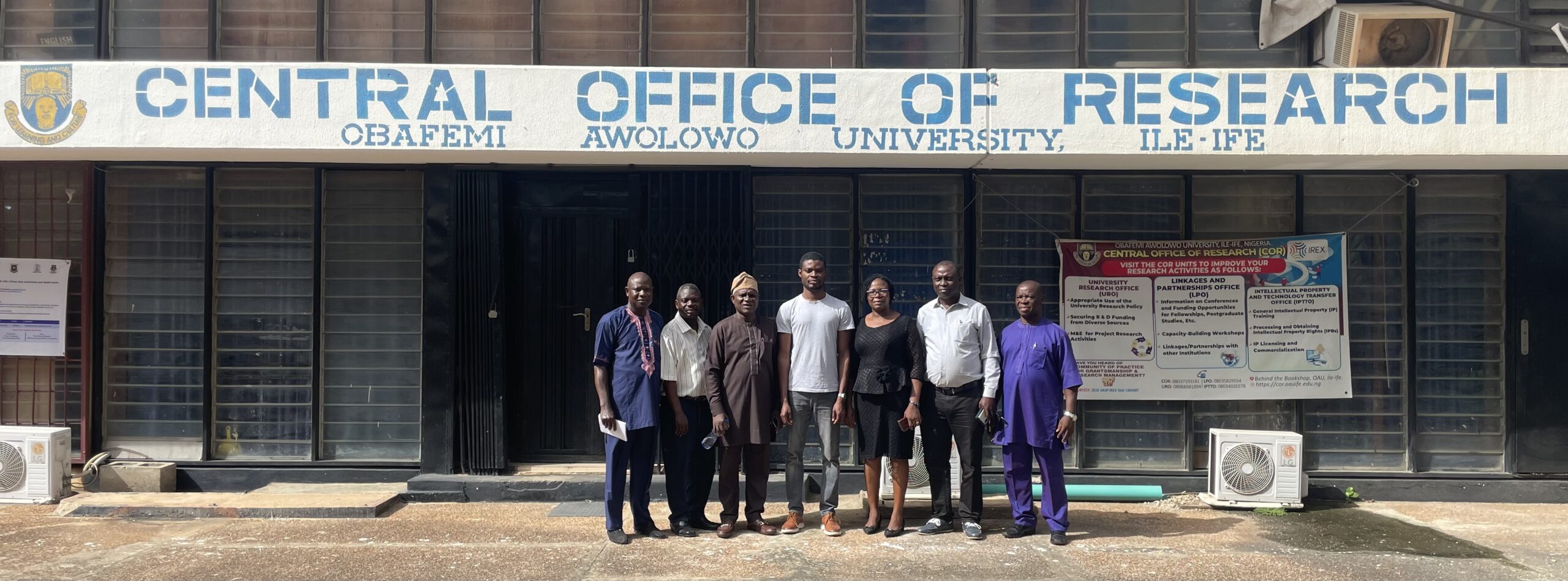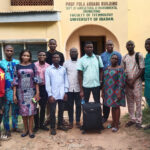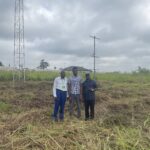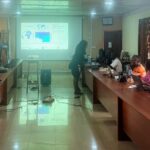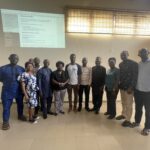By Joseph Ovwemuvwose
Introduction
The world of scientific research is marked by its desire for data, the lifeblood of knowledge. However, a glaring disparity exists when it comes to data availability, with the global south, especially developing economies, often left in the shadows. This data divide poses a significant challenge to understanding and addressing critical global issues, from climate change and wildfires to droughts and atmospheric circulation. To overcome this limitation, data collection efforts must extend to these underserved regions. This blog post explores the ground-breaking efforts of Joseph Ovwemuvwose, a LEMONTREE doctoral researcher at Imperial College London, in bridging this data gap and fostering collaboration between the UK and African researchers in the field of terrestrial ecosystem modelling.
Funding and project objectives: The ARUA – Imperial Research Seed Fund
Joseph’s journey to connect next-generation terrestrial ecosystem modelling in the UK with African researchers began with an opportunity presented by the African Research University Alliance – Imperial Research Seed Fund. ARUA, a coalition of 16 Sub-Saharan African universities, aims to elevate research standards in Africa by African researchers. Joseph and his supervisor, Dr Heather Graven, identified seven potential collaborators from four Nigerian universities, two of which are members of ARUA. After securing funding through the ARUA – Imperial Seed Fund In the summer of 2023, Joseph headed to Nigeria. The primary goals of this initial project phase included:
- Introducing participants to Python programming, a crucial language for running the P model.
- Familiarising participants with the P model, including how to set up the required Python environment.
- Compiling available data for model inputs and evaluation.
- Identifying research needs and potential solutions through facility provision and training.
- Establishing a collaborative network for future research funding applications.
Expanding the project’s reach, Joseph enlisted collaborators from four universities, engaging graduate students, academics and researchers in various fields, such as ecology, remote sensing and geospatial science. An open invitation to attend the Python and P model training was extended, leading to 105-in person participants across multiple universities. The training was a success with much interest in developing future collaborations with the project and Imperial College London. It has been a catalyst for strengthening research ties between the UK and African institutions.
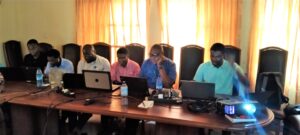
Benefits for African collaborators, the LEMONTREE project and Imperial College London
The LEMONTREE project, focusing on next-generation land surface models, offers a unique opportunity for African researchers. Modelling and computer simulation capabilities are relatively underutilized in Africa, and this collaboration with Imperial College London promises to equip African researchers with cutting-edge skills.
Addressing the data scarcity challenge, the project aims to secure funding for essential observation facilities, such as weather stations and flux towers. This endeavour will not only enhance data availability but also provide local researchers with valuable resources. Currently, many researchers resort to laborious downscaling of model outputs due to limited access to large datasets and computing power. The project seeks to rectify this limitation, promising a brighter future for African research.
- African academics and researchers. The project and the resulting team is actively seeking ways to conduct training to improve researchers capacities, and sourcing funds from various funding bodies to provide facilities that will enhance the research activities of local researchers and academics.
- Imperial College London. The members of this team express excitement and willingness for future collaboration on projects in which we share common interests. Establishment of data collection and ecological measurement centres for the collection of data from Africa in the future. This will benefit the general research community through Imperial College London efforts.
- The LEMONTREE Project: The LEMONTREE Project will benefit from this project in the long run since the model will be one of the first to make in-road into the country. Our immediate next step will involve specific data collection which will be useful for model input, calibration and evaluation.
Moving Forward: the NRF 2023 grants application
The collaborative network resulting from this project has submitted a concept note for the Tetfund National Research Fund (NRF) 2023 Grants Application. The proposed project, “Developing a Country-Based Computer Model for Terrestrial Ecosystem Monitoring and Management,” seeks substantial funding to further its mission. Future events will include additional funding applications to address the challenges posed by data scarcity and limited research resources.
Feedback from participants
The training received positive feedback from participants who appreciated the initiative and the knowledge shared. However, some challenges were identified, including the complexity of setting up the P model environment on personal computers and the need for more extensive training sessions. Additionally, logistical issues regarding venue information were noted.
Conclusion
Joseph’s efforts to bridge the data gap between the UK and Africa have laid the foundation for collaborative research that promises to advance our understanding of terrestrial ecosystems and address global challenges. Through funding, training, and resource provision, this project has paved the way for mutually beneficial partnerships and a brighter future for scientific research in Africa. As the project continues to evolve, its impact on the global scientific community and the environment is bound to be profound.

